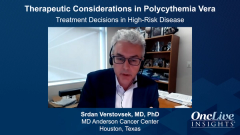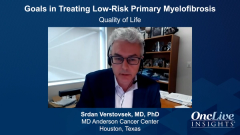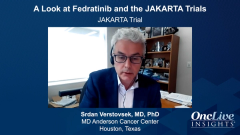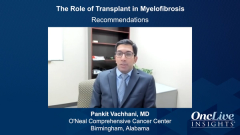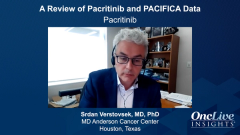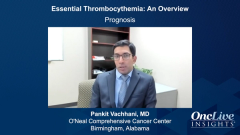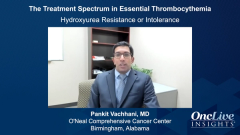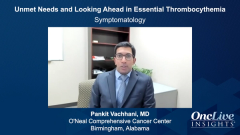
Unmet Needs and Looking Ahead in Essential Thrombocythemia
Unmet needs and current areas that are being studied in in essential thrombocythemia.
Episodes in this series

Pankit Vachhani, MD: There are a few unmet needs in essential thrombocytosis. One is that irrespective of the treatments that we talk about, whether that’s hydroxyurea, interferon, anagrelide, ruxolitinib, etc, none of these agents has been shown to prevent progression to myelofibrosis or to the blastic phase of essential thrombocytosis. It’s important to note that it is possible that interferon may have the potential of decreasing the chances of progression to this blastic phase or overt myelofibrosis stage through a disease-modifying effect. But it needs to be studied right now. The second unmet need is that the currently used drugs, like hydroxyurea, interferon, and anagrelide in essential thrombocytosis do not typically help much with symptomatology of patients.
We need a drug in this setting. Additional trials of ruxolitinib are ongoing, and data are awaited in that setting.
A third area that is not truly an unmet need but an area that deserved more investigation is the use of low-dose aspirin. Studies have been performed, and these studies have looked into, for example, 1 dose of aspirin vs 2 doses of aspirin and 3 doses of aspirin to see if more consistent thrombosis inhibition can achieve. However, we still do not know if this changes the clinical outcome. At some point more clarity on the use of 1 vs 2 vs possibly even more doses of aspirin needs to happen.
There are not many ongoing clinical trials looking at novel drugs in essential thrombocytosis. One such drug, which appears to be promising but needs to be studied, is ropeginterferon. This is a new interferon drug, which has been approved in Europe for polycythemia vera. This is an agent with potential for disease modification. I would keep my eye on it in the essential thrombocytosis space.
Transcript edited for clarity.



